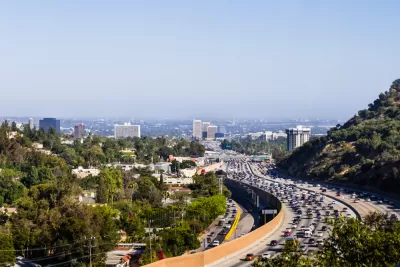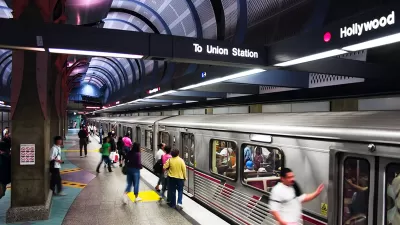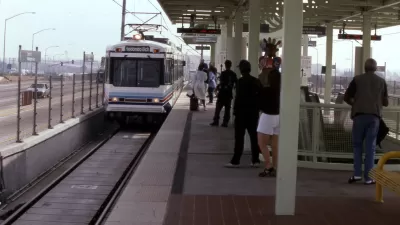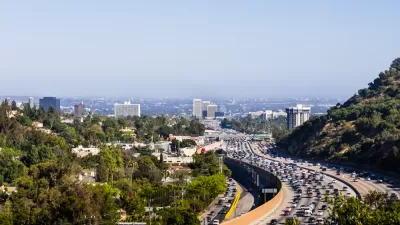The Sepulveda Transit Corridor could offer tens of thousands of Los Angeles commuters an alternative to the infamously congested I-405 freeway, if local officials can find the funding.

"Building a transit line through the Sepulveda Pass, one of the worst traffic bottlenecks in Southern California, could cost more than $13 billion, a figure significantly higher than previous estimates," reports Laura Nelson.
That leaves the project with a potential funding gap of $8 billion, according to the new cost estimate released by Los Angeles County officials this week. "The project has about $5.7 billion earmarked from Measure M, the sales tax increase that county voters approved in 2016," according to Nelson. Federal and state funds will be necessary to fill the funding gap.
"The cost estimate for the project was far lower when Metro officials compiled a funding list for Measure M in 2015," notes Nelson. Another figure that has changed in reports on the project: the amount of funding Metro has to spend on the project. Writing for Metro in January 2019 to announce refined plans for the project, Steve Hymon said the transportation agency had $10 billion to spend on the project.
For more, timely information on Measure M, see also an Eno Center for Transportation report published this week on the lessons of the Measure M campaign that convinced a supermajority of voters to approve the funding measure.
Nelson provides a lot more details on the numerous alternatives still in play for the project, including routing alternatives and funding and operations proposals that include partnering with the private sector to build, operate, and maintain the project. There is also a monorail in play.
FULL STORY: Cost of Metro transit line through the Sepulveda Pass could reach $13 billion

Planetizen Federal Action Tracker
A weekly monitor of how Trump’s orders and actions are impacting planners and planning in America.

San Francisco's School District Spent $105M To Build Affordable Housing for Teachers — And That's Just the Beginning
SFUSD joins a growing list of school districts using their land holdings to address housing affordability challenges faced by their own employees.

The Tiny, Adorable $7,000 Car Turning Japan Onto EVs
The single seat Mibot charges from a regular plug as quickly as an iPad, and is about half the price of an average EV.

As Trump Phases Out FEMA, Is It Time to Flee the Floodplains?
With less federal funding available for disaster relief efforts, the need to relocate at-risk communities is more urgent than ever.

With Protected Lanes, 460% More People Commute by Bike
For those needing more ammo, more data proving what we already knew is here.

In More Metros Than You’d Think, Suburbs are Now More Expensive Than the City
If you're moving to the burbs to save on square footage, data shows you should think again.
Urban Design for Planners 1: Software Tools
This six-course series explores essential urban design concepts using open source software and equips planners with the tools they need to participate fully in the urban design process.
Planning for Universal Design
Learn the tools for implementing Universal Design in planning regulations.
Smith Gee Studio
City of Charlotte
City of Camden Redevelopment Agency
City of Astoria
Transportation Research & Education Center (TREC) at Portland State University
US High Speed Rail Association
City of Camden Redevelopment Agency
Municipality of Princeton (NJ)





























